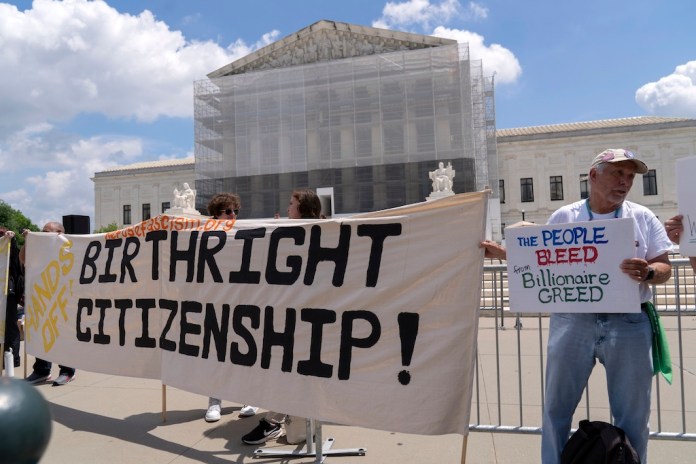Texas Supreme Court lets judges opt out of same-sex marriages
The Texas Supreme Court has ruled that judges in the state can opt out of performing same-sex marriages if such ceremonies conflict with their sincerely held religious beliefs, without facing penalties. The court amended Canon 4 of the Texas code of Judicial Conduct to clarify that judges who publicly refuse to officiate weddings due to religious reasons are not violating rules on judicial impartiality. This decision comes after the case involving Waco Justice of the Peace Dianne Hensley, who was sanctioned in 2019 for declining to officiate same-sex marriages based on her Christian faith but took steps to refer couples to other officiants. hensley challenged the sanction, citing the Texas Religious Freedom Restoration Act. The issue has persisted with other judges, such as Jack County Judge Brian Umphress, who similarly object to performing same-sex weddings on religious grounds and have questioned the constitutionality of existing rules. The Texas Supreme Court’s recent amendment appears to address these concerns by protecting judges’ rights to religious exemption in this context.
Texas Supreme Court lets judges opt out of performing same-sex marriages based on religious beliefs
Texas judges will no longer face penalties if they opt out of performing same-sex marriages if the practice violates their religious beliefs, the state’s highest court ruled.
The Texas Supreme Court added a comment to the state’s judicial conduct code declaring that judges who “publicly refrain from performing a wedding ceremony based upon a sincerely held religious belief” are not in violation of the state’s rules on judicial impartiality.
The eight justices signed off on the order amending Canon 4 of the Texas Code of Judicial Conduct last week. The court directed the order to be filed with the Secretary of State and sent to the governor, lieutenant governor, and all legislative members. In addition, the order is to be mailed to each registered member of the State Bar of Texas.
The court’s decision, while not naming same-sex marriages directly, amends the same judicial rule that the State Commission on Judicial Conduct accused Waco Justice of the Peace Dianne Hensley of violating in 2019.
The commission sanctioned Hensley after she declined to officiate weddings for same-sex couples because of her Christian beliefs. The Waco judge made it a practice to “politely” refer same-sex couples to a different judge and other nearby officiants so they could be married, according to court filings.
The commission’s move to issue a public warning, the second-highest of six disciplinary measures, to Hensley prompted her to mount a lawsuit. The judge argued the state violated rights to religious exemption she said was guaranteed under the Texas Religious Freedom Restoration Act, and asked the Texas Supreme Court to state that any justice of the peace may refuse to officiate a same-sex wedding “if the commands of their religious faith forbid them to participate in same-sex marriage ceremonies.”
The commission said Hensley’s “conduct demonstrates her bias against certain citizens of the State of Texas.” She was “casting doubt on her capacity to act impartially to persons appearing before her as a judge due to the person’s sexual orientation,” according to the commission.
Hensley’s legal team argued that she went above and beyond to make sure gay couples were accommodated. The judge located a venue within walking distance of her office that agreed to reduce the cost of the wedding to the same amount Hensley received and that would perform same-sex weddings within the same time frame as the judge, according to attorneys with First Liberty.
“For providing a solution to meet a need in my community while remaining faithful to my religious beliefs, I received a ‘Public Warning.’ No one should be punished for that,” Hensley told the Texas Tribune at the time.
While the commission withdrew its warning after the Texas Supreme Court issued a ruling last year stating Hensley’s lawsuit had legal standing to advance, the Waco judge’s case is still playing out in courts.
The same debate has come to the Texas Supreme Court’s attention through the case of Jack County Judge Brian Umphress. The North Texas judge says his religious beliefs constrain him to only officiate heterosexual weddings. He is also challenging the commission’s application of Canon 4 that was used against Hensley, contending it is unconstitutional and expressing concern that he could face the same sanctions.
SUPREME COURT TO HEAR FTC FIRING LAWSUIT TEEING UP CHALLENGE TO 90-YEAR-OLD PRECEDENT
Jackson’s case went to the 5th Circuit court. In April, the federal appeals court requested that the Texas Supreme Court weigh in on the matter and respond to the certified question: “Does Canon 4A(1) of the Texas Code of Judicial Conduct prohibit judges from publicly refusing, for moral or religious reasons, to perform same-sex weddings while continuing to perform opposite-sex weddings?”
While the state’s supreme court has yet to directly answer the question, legal experts told the Texas Tribune this week that the court’s latest move to amend Canon 4 seems to resolve Umphress’s claims.
" Conservative News Daily does not always share or support the views and opinions expressed here; they are just those of the writer."


